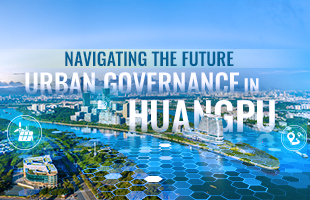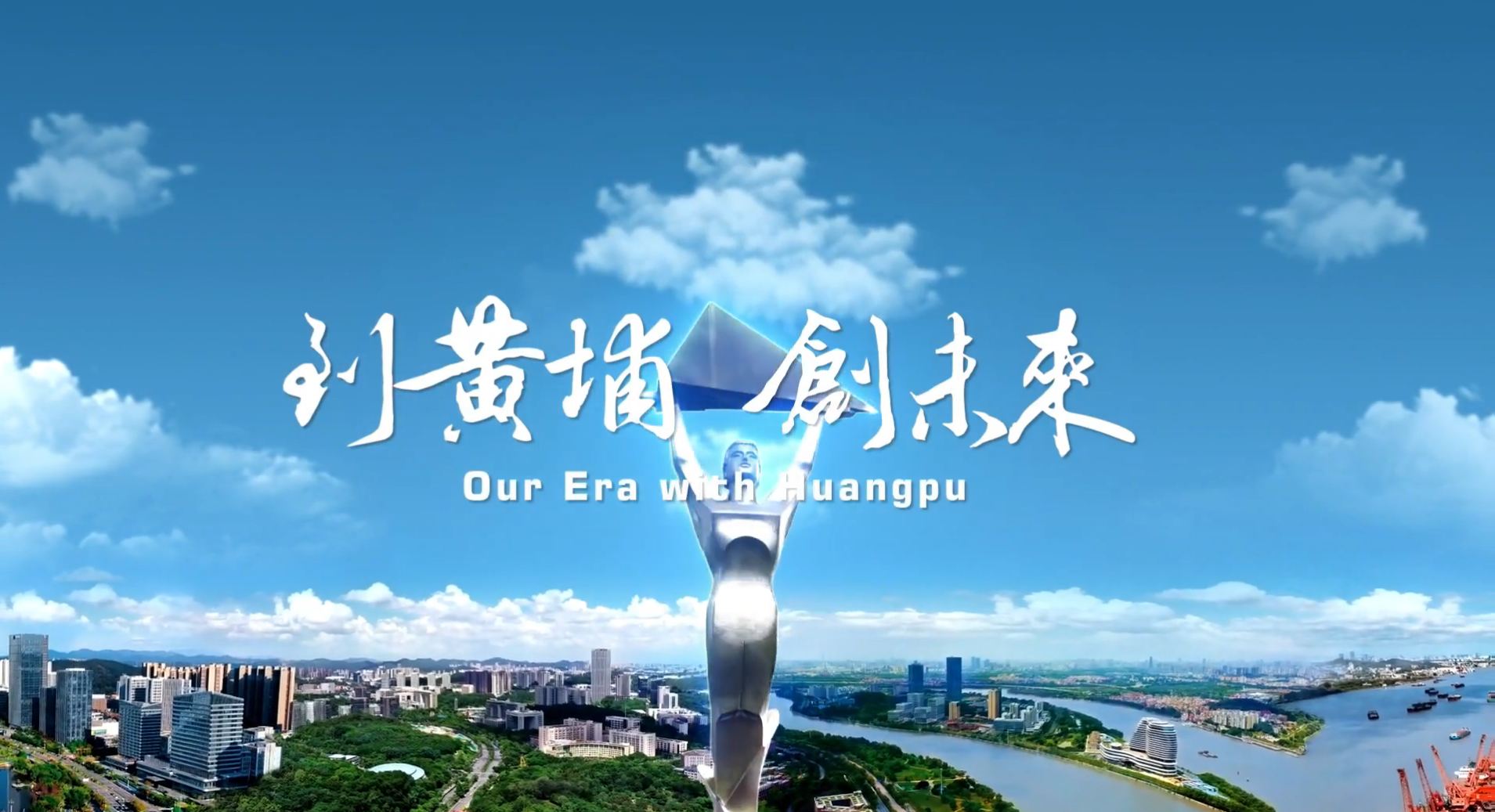Guangzhou Development District: the best place for a successful enterprise
Updated : 2018-11-13The Huangpu district / Guangzhou Development District is a window of Guangzhou's opening to the world. Foreign capital actually invested and contractual use of foreign funds account for about one-third of city revenue. It is also the manufacturing and high-tech enterprise district with the largest density in Guangzhou and the whole of the Pearl River Delta region. The total industrial output value of the region accounts for nearly 40 percent of the city’s, and the total output value of substantial high-tech industries accounts for 80 percent of the city’s revenue. High-tech industrial output is 78 percent of the city income. The region has more than 38,000 enterprises, including more than 3,400 foreign-funded ventures, over 170 Fortune Global 500 projects, 49 stock listed enterprises and 1,632 high-tech firms.
In 2017, the regional GDP totaled 321 billion yuan, with a substantial industrial output value of 745.9 billion yuan, and 110.1 billion yuan of investment in fixed assets. Tax revenues exceeded 100 billion yuan (ranking first among all development zones in China, and meeting the goal of the “13th Five-Year Plan” three years in advance). The district became the country's first development zone with tax revenue of hundreds of billions of yuan, and consistently ranked first in profit differential for eight consecutive years.
In 2017, 117 new foreign-funded projects were set up in the region, with year-on-year growth of 27.2 percent. Foreign contract investment reached 2.24 billion US dollars, and actual foreign capital utilized totaled 2.22 billion US dollars, which ranked first in Guangzhou and among the top three for national development zones. We have introduced more than 10 new investment projects with Fortune Global 500 companies, such as GE Biotechnology Park, LG OLED, BeiGene, Mars Wrigley, P&G Digital Innovation Center, Hitachi Systems, Cosma Automotive, Thermo Fisher Scientific, The Cold Spring Harbor Laboratory, and Jabil Circuit.
From January to August of 2018, the region has attracted about 166 billion yuan of investment with 108 new foreign-funded projects added, an increase of 83 percent. Foreign contract capital was US $30.15 billion. The regions actual utilization of foreign capital was 1.38 billion US dollars, and the actual utilization of foreign capital continued to rank first among all districts in the city.
Since 2017, four "10 gold policies" and two "10 jade policies" have been introduced in China under a "golden jade" policy system for better company development.
Regional transportation
The Huangpu district / Guangzhou Development District is located east of Guangzhou, in the center of the "Golden Delta" of Hong Kong, Macau and the Pearl River Delta Region.
- 60 minutes journey to Baiyun airport;
- 1.5 hours drive to cities in the Pearl River Delta and Hong Kong as well as Macao;
- It's a three-hour flight to Beijing, Seoul, Tokyo and other major cities in Southeast Asia, provided by more than 100 international airlines.
Port Facilities: Huangpu Port in the region has eight 30,000-ton berths making it one of the largest container terminals in south China.
Rail transit: six subway lines run through the district, supporting a practical working and living environment.
Biological Island
Located in Southeast Guangzhou, it is an island in the center of the waterway in the development zone behind the Pearl River, making it the "heart of Guangzhou".
It is connected by Metro Line 4, the Guanzhou Tunnel and Luntou Tunnel with University Town and City center.
- 10 minute drive from downtown
- 20 minute drive from the East Railway Station
- 90 minute drive from Baiyun International Airport
It's also linked to several highways that can reach major cities in the Pearl River Delta within two hours,as well as Hong Kong and Macao.
The only provincial-level experimental area for business environmental reform,
offering accelerated applicationa for national-level business environment reform pilot areas
The provincial government investigated and thereafter delegated to the Guangzhou Development District decision making authority in all matters pertaining to administrative approval, comprehensive reform of intellectual property rights, and full control of policies on the promotion of the Free Trade Zone.
The district enjoys provincial and municipal authority in land acquisition and development, planning, project approval, construction and approval for manufacturing procedure applications. It can examine and approve the establishment and changes of foreign-funded ventures valued under $1 billion US dollars,and restricted foreign-funded enterprises with total investment less than 100 million US dollars.
The district will implement "commitment system, trust approval", "customized approval", and “one stop service” and conduct free trade experiments, promoting the use of intellectual property and protection reform.
The bureau of administrative approval was the first to be set up in the province. Financial construction, from project approval to commencement, will be reduced from 466 to 120 working days, and enterprise construction will be shortened from 110 to 30 working days. The goal of "one-month approval, 3-month land acquisition and 6-month start of construction" has been promoted for enterprise construction. The bureau of policy realization window was the first to be set up in the province. Its goal is to establish a “one stop service center, to settle the case within a set time limit”. One department coordinates and tracks the 51 policies and 219 items of 14 business departments in the region, and completes the fulfillment within 34 working days. In 2017, more than 9,500 applications were successfully finalized, with an average time of processing of less than 11 working days, and a time of completion shortened by more than 60 percent.
There are 248 items of administrative approval and public service in 11 departments of the development zone, which are integrated into the "one-window" comprehensive acceptance system of the district government service center. The implementation of the new mode of "multi-certificate joint office" registration allows new enterprise registration to be completed within one day; Government subsidies and other policy implementation matters are set up for "one-door" acceptance.
The only comprehensive reform test area of intellectual property applications and protection in China
In July 2016, the state council officially approved the implementation of a comprehensive reform experiment on intellectual property protection applications in Sino-Singapore Guangzhou Intellectual City, and the Guangzhou Development District became the only experimental field in China approved by the state council to carry out intellectual property reform.
At present, an intellectual property protection system integrating judicial procedures, mediation, arbitration, administrative law enforcement and quick rights protection as well as a diversified intellectual property dispute resolution mechanism has been established, making the district the most comprehensive zone of intellectual property protection elements in China. Up to now, 14 out of the 75 intellectual property rights service agencies in the region are national IP service brands or locally cultivated ones.
The "10 jade" policy of intellectual property gives a reward of up to 10 million yuan to intellectual property service organizations that settle and operate in this region, support that leads nationally. An operating and development fund for intellectual property and a pledge financing risk pool have been set up, and a ten-billion yuan operating fund for intellectual property and the province's first "intellectual property characteristic sub-branch" have been established.
Main battle ground for development of strategic emerging industry in Guangzhou
The three strategic emerging industries of the Huangpu district/Guangzhou Development District are new generation information technology, artificial intelligence and biomedicine, which account for more than 60 percent of the city’s output value. In 2017, the production value of new-generation information technology in the development district exceeded 180 billion yuan, with the output value of artificial intelligence reaching 35 billion yuan, and the business revenue of biological medicine industry surpassing 70 billion yuan. There are more than 1,200 new generation information technology enterprises in the district; the output value of the flat-panel display industry alone will reach 300 billion yuan by 2020, making it the largest flat-panel display industrial cluster in China. There are more than 300 AI industrial companies, and the Huangpu intelligent equipment industrial park is listed as one of the four key parks of China-Israel High-tech Industrial Cooperation by the national development and reform commission. And there are more than 1000 representative biomedicine businesses with nearly 230 above designated size. It is estimated that the operating revenue of the biomedical industry will reach 100 billion yuan by 2020.
At present, the nation is planning to build five value innovation parks, including a new generation information technology industrial park, an artificial intelligence island, a biological medicine industrial park, a new energy and new materials park and a new energy vehicle value park.
A superior investment environment and a strong base
Guangzhou, the capital city of Guangdong province, a nationally famous historical and cultural city, an important metropolis of our country, an international trade center and a comprehensive transportation hub, with 2200 years of history including being the start of the ancient maritime Silk Road, is China's oldest and only foreign treaty port and has never shut down. In each of 2017, 2015, 2014, 2013, 2011 and 2010, Guangzhou topped the listed as China’s best business city in Forbes Magazine.
The Guangdong, Hong Kong and Macao greater bay area, known as the "bay crown jewel", is presenting new heights of international cooperation
"International" circle of friends:
It is focusing on expanding international innovation platforms in China with Singapore, the UK, Europe, and Israel, and has attracted more than 3,000 foreign investment projects from over 60 countries and regions.
- Sino-Singapore Guangzhou Knowledge City
The Sino-Singapore Guangzhou Knowledge City, a landmark China-Singapore cooperation project jointly promoted by Guangdong Province and Singapore, has been approved as the only national intellectual property comprehensive reform pilot zone. At the end of 2017, Knowledge City upgraded to a state-level bilateral cooperation project.
- Pilot areas for China-EU regional policy cooperation
The Guangzhou Development District was listed as the first China-EU regional policy cooperation pilot area in 2013, focusing on scientific and technological innovation, industrial upgrading, education training, intellectual property cooperation, energy and environmental protection cooperation, urban construction and management as well as other fields.
- Key areas of China-Israel cooperation in high-tech industries
The Guangzhou Development District (including the Huangpu Intelligent Industrial Park) is one of the four key areas of China-Israel high-tech industrial cooperation approved by the national development and reform commission. In its working with Israel it focuses on promoting intelligent manufacturing and robotics industries, and building a China-Israel biological industrial incubation base and a China-Israel robot industrial park.
- China-Saudi Arabia Capacity Cooperation Demonstration Zone
On January 19, 2016, the Guangzhou Development District, the Yinchuan Development Zone and a Saudi Arabian oil company officially signed a memorandum of cooperation, agreeing to set up a joint venture company to cooperate in the production capacity cooperation project of Saudi Gazan economic city and carry out cooperation between China and Saudi Arabia. Future projects will play an important role in enhancing international cooperation in Guangdong and promoting the transfer of superior production technology.
- Investment and Entrepreneurship
- Investment Advantages
- Investment Guide
- Policies
- Key Projects
- Major Industries
- Industrial Parks
- Investment Opportunities
- Technological Innovation
- IPR
- Enterprises
- Talents
All rights reserved. Presented by China Daily
粤ICP备16087157号-1










